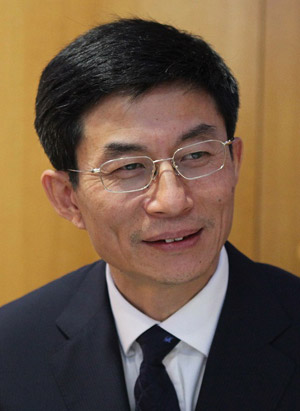Internet offers netizens a new voice
The Internet has become an increasingly important platform for the Chinese to express opinions on government policies and social issues, a senior Internet regulator has said.
 |
|
Liu Zhengrong is the deputy chief of the Internet Affairs Bureau of the State Council Information Office |
"You can compare China with Western countries. Chinese people have easy rein to express their opinions," Liu Zhengrong, deputy chief of the Internet Affairs Bureau of the State Council Information Office (SCIO), told China Daily.
The Internet has satisfied Chinese people's demand for information, enriched their lives and opened a convenient channel for people to express their ideas, and to observe and participate in state affairs, Liu said.
Liu made the remarks at the end of the Third China-UK Internet Roundtable, an annual event co-hosted by the SCIO and the UK Department for Business, Innovation and Skills.
According to official figures, China has 420 million registered Internet users and the coverage has risen to 31.8 percent of the total population. China has the world's largest Internet population and its coverage has surpassed the average world level.
In China, it has become a common practice for local governments to solicit public opinion before publicly releasing important policies. Sometimes a post on the Internet that is representative of public views can attract attention from senior decision-makers, who will then reply to it and even make a new policy based on it.
"It is clear that any country's legal authorities closely monitor the spread of illegal information," Liu said. "We have noted that the UK is doing a good job on this front."
However, there are differences in attitudes to the Internet between China and Western countries because they are at different stages of development and follow different traditions, said Liu.
For example, he noted, China bans the spread of all kinds of pornography, while Western countries only prevent pornography that involves children.
China hopes that more foreigners could learn about the development and use of the Internet in the country as contact and shared information are good for both sides, Liu said.
In the future, China and Britain should improve communication between industrial organizations in the two countries, strengthening coordination and punishment on security incidents, such as hacking and pornography, to create together a safe and reliable Internet environment, he added.
China is no different from Western nations such as the United States and Britain in the methods it uses to regulate the Internet, said Liu.
This year, the roundtable comprised four discussion sessions on cloud computing, protection of digital intellectual property rights, mobile Internet content based on 3G and 4G platforms, and e-commerce.
 0
0 







Go to Forum >>0 Comments